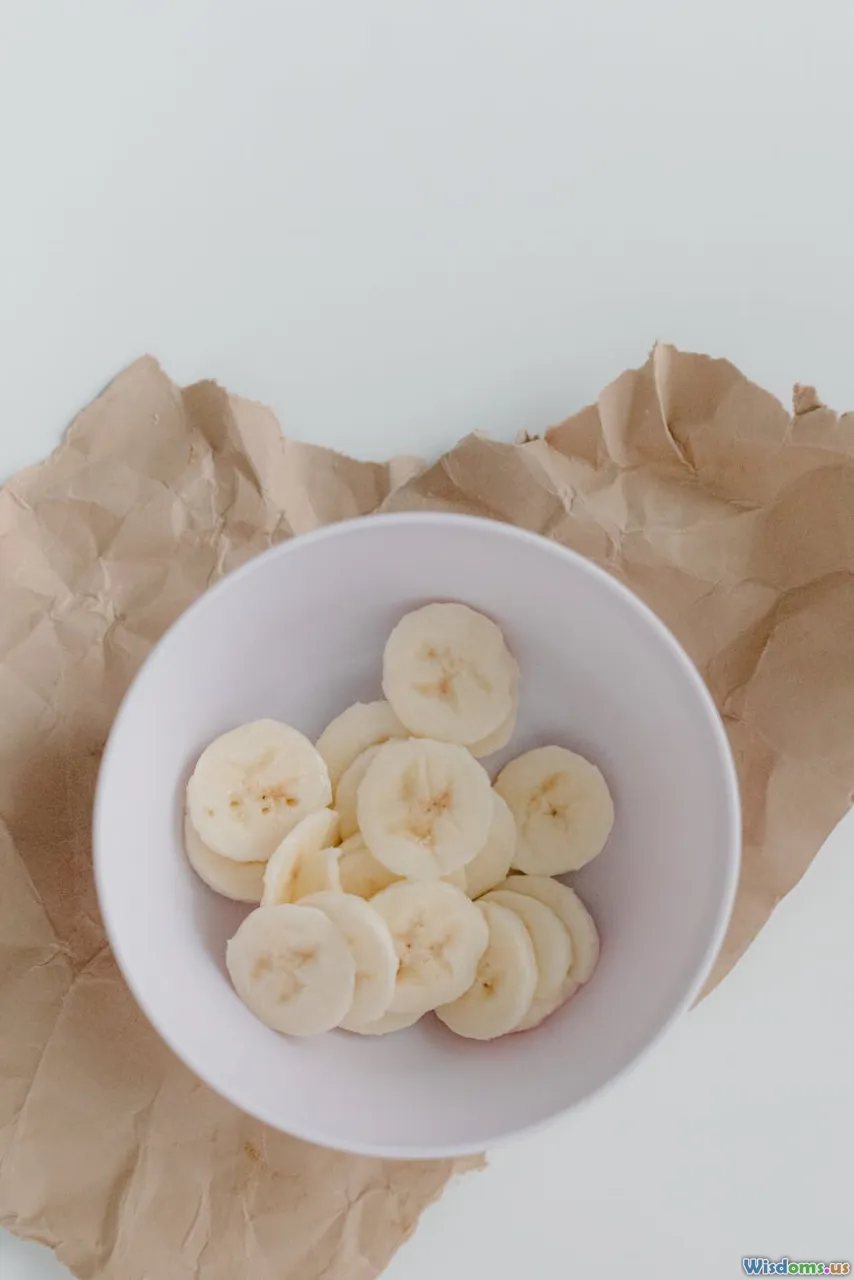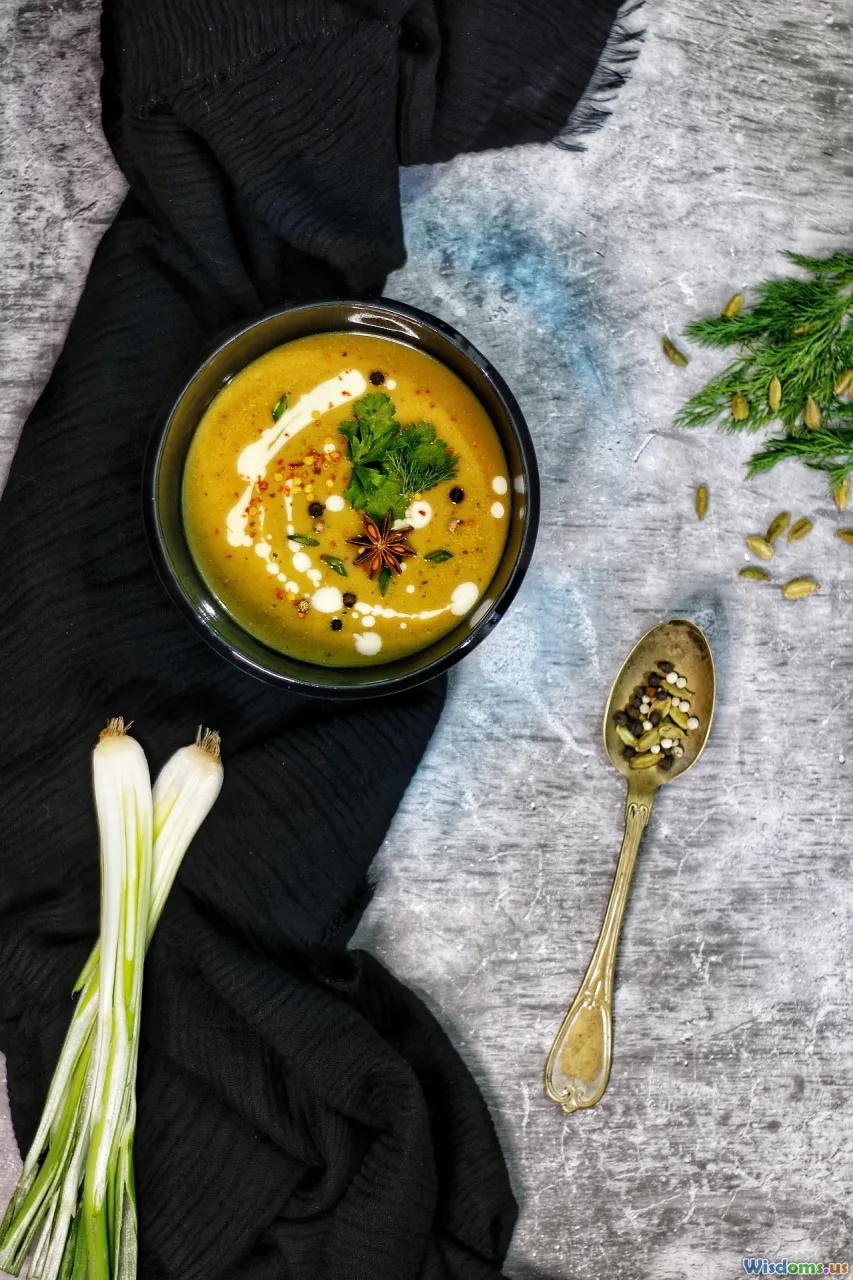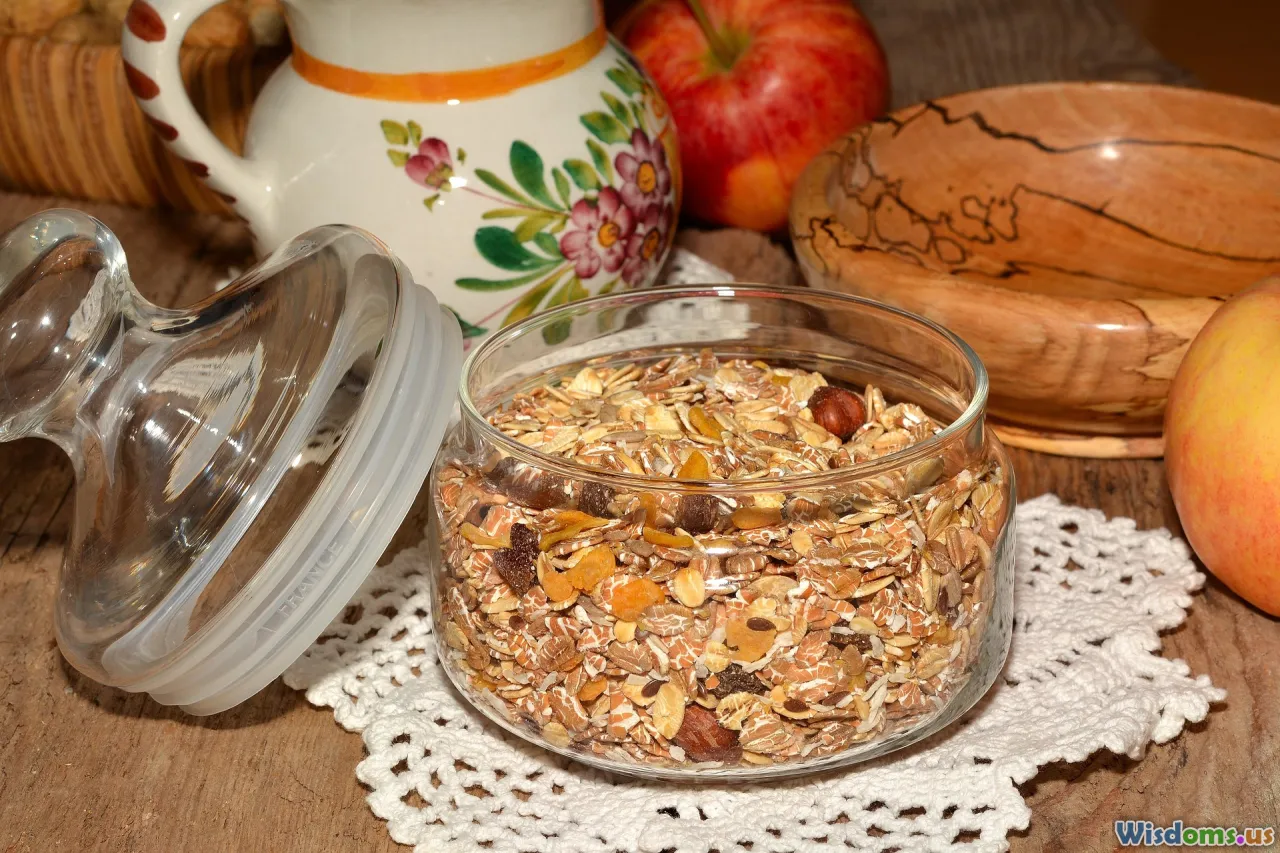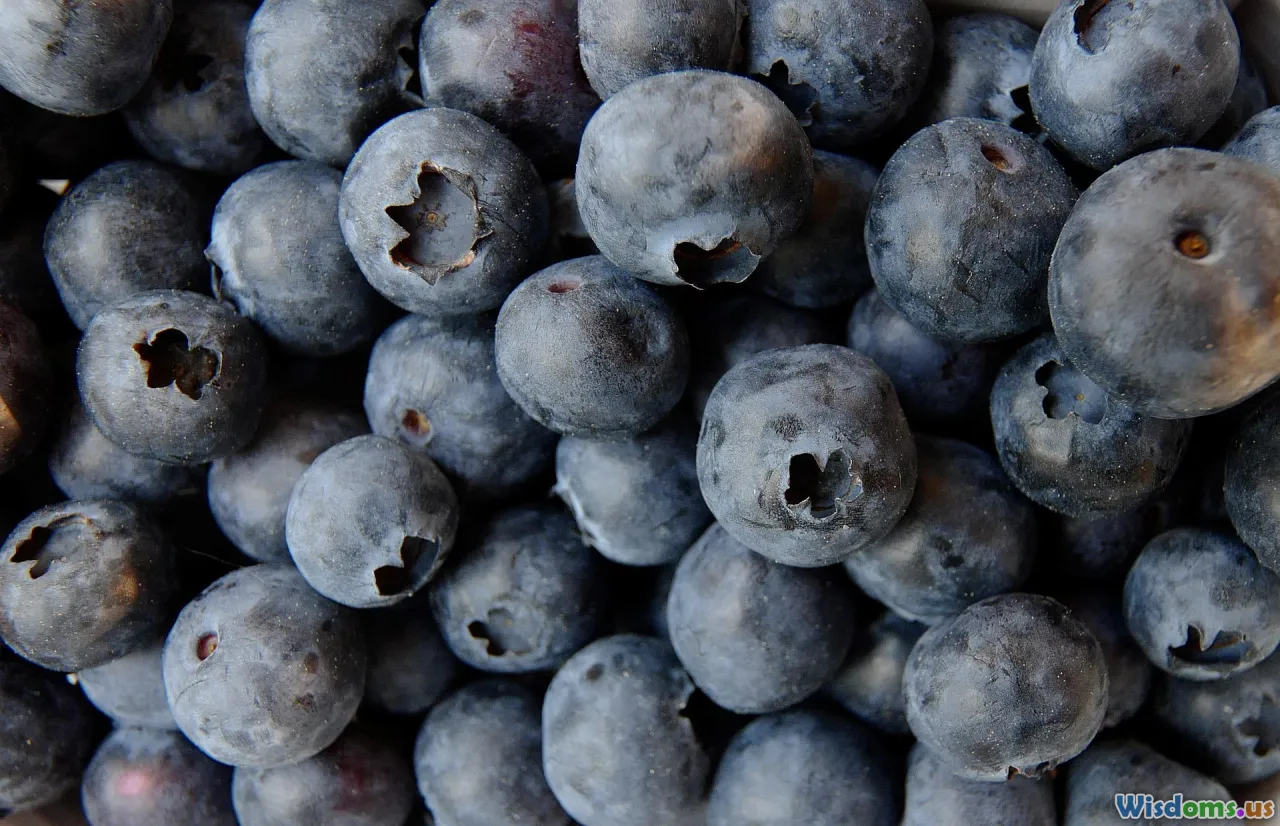
Seven Whole Foods to Transform Your Gut Health Today
10 min read Discover seven powerhouse whole foods that can rapidly enhance your gut health and digestion for lasting wellness improvements. (0 Reviews)
Seven Whole Foods to Transform Your Gut Health Today
Achieving optimal gut health isn’t just a passing trend—it’s a revolution based on science. With the connection between the gut and immunity, mental clarity, and even mood now widely acknowledged, more people are seeking natural ways to nurture their digestive system. Fortunately, the journey to a vibrant gut doesn’t require expensive supplements or fad diets. Instead, it begins on your plate—with accessible, delicious whole foods.
From ancient grains to colorful cruciferous veggies, discover seven gut-friendly powerhouses that can make a tangible difference starting today.
Fermented Vegetables: The Natural Probiotic Boosters

Fermented foods harness centuries-old preservation traditions to deliver health in a jar. The process uses natural bacteria—mostly Lactobacillus strains—to break down sugars and starches, creating living probiotic cultures.
Why Fermented Veggies Matter
Kimchi, sauerkraut, and pickled cucumbers (made without vinegar) are brimming with beneficial bacteria. These probiotics colonize your gut, support digestiion, and antagonize harmful pathogens. Multiple studies show that regular intake of fermented vegetables increases the diversity of gut microbes—a hallmark of robust digestive and immune health.
Real-World Example
In Korea, kimchi is eaten with nearly every meal. Research published in Frontiers in Microbiology found that kimchi consumption for just two weeks significantly improved intestinal health markers in adults. The benefits don’t require special supplements—just a daily serving of your favorite tangy ferment.
Tip: Add a spoonful of sauerkraut or kimchi to grain bowls, salads, or as a condiment for sandwiches. Start with small amounts if you’re new to ferments, as a sudden influx can briefly cause extra gas or bloating.
Bananas: Nature’s Prebiotic Snack

Bananas are often underestimated as a gut health food, but they offer a double punch: digestible fiber and prebiotics.
The Science Behind Bananas
Prebiotics are nondigestible fibers that nourish good gut bacteria—essentially fertilizer for your microbiome. Bananas, especially when still slightly green, provide resistant starch that feeds Bifidobacteria and other key microbes.
Researchers from the University of Maastricht showed that women who consumed two bananas per day for two months reported less bloating and more regular bowel habits. Bananas also supply magnesium and tryptophan, which play a supporting role in digestive comfort and mood regulation.
Creative Ways to Eat More
- Add slices to overnight oats with chia and flax seeds.
- Blend into smoothies with natural yogurt.
- Freeze and blend for an instant creamy treat.
Lentils: Protein and Prebiotics in One Pot

Round, versatile, and affordable, lentils are a nutritional jackpot for gut health enthusiasts.
Fiber & Resistant Starch Explained
Lentils provide both soluble and insoluble fiber, stabilizing blood sugar and preventing dramatic spikes that could harm your microbiome. Their resistant starch content, particularly after cooling, encourages the production of butyrate—a short-chain fatty acid key for sustaining colon cells and dampening inflammation.
Wider Benefits
In India, lentil-based dal is a daily staple. Populations with such dietary habits exhibit notably lower incidences of colon dysfunction and inflammatory disease, something Western science increasingly attributes to their fiber-rich, legume-based diets.
How-To Tip
Pressure cook or simmer lentils with garlic, cumin, and turmeric for a doubly soothing meal for your gut.
Yogurt: Classic Probiotic Powerhouse (With a Caveat)

Yogurt is synonymous with probiotics—but not all store varieties are created equal.
What Makes Gut-Friendly Yogurt?
Look for products labeled with “live and active cultures.” This guarantees a significant population of probiotic bacteria. Greek, plain, or Icelandic varieties usually fit the bill. Avoid those with high added sugars, as sugary yogurts can actually fuel less favorable gut bacteria.
Real-Life Insight
In one double-blind trial from Sweden (Nutrition Journal), adults who consumed probiotic-rich yogurt daily saw improvements in stool consistency and a reduction in digestive discomfort, especially among those with irritable bowel syndrome.
Pro Tips
- Make your own yogurt at home—milk and a small starter is all you need.
- Add a spoonful of honey and a sprinkle of seeds to amplify the prebiotics and antioxidants.
Garlic: Ancient Root for Modern Gut Care

Garlic may be best known for its wide culinary use, but it also packs prebiotics—mainly inulin and fructooligosaccharides—that encourage the growth of beneficial gut flora.
How Garlic Transforms the Microbiome
A small 2018 study from Food Science & Nutrition showed that people consuming fresh garlic daily demonstrated not only stronger populations of Bifidobacteria but also reduced markers for pathogenic bacteria like Clostridium.
Garlic also acts as an anti-inflammatory agent and can inhibit harmful gut yeasts. Roasting garlic mellows its flavor and retains many of its health benefits—turning it into a sweet, spreadable gut booster.
Practical Advice
Sauté minced garlic with leafy greens, toss roasted cloves into salads, or blend with olive oil for a tangy, immune-supporting dip.
Oats: The Forgotten Fiber Hero

Many cereals marketed for gut health fall short of whole-grain nutrition. Oats, however, uphold their reputation as both tasty and transformative.
What Makes Oats Special
Oats are loaded with beta-glucans—a type of soluble fiber linked with lower cholesterol and better regulation of digestive rhythms. What’s less discussed is their prebiotic effect: beta-glucans feed gut bacteria that produce anti-inflammatory short-chain fatty acids.
Concrete Results
A 12-week study from the British Journal of Nutrition observed that volunteers eating oats daily saw measurable hopes in their populations of Faecalibacterium prausnitzii, an anti-inflammatory, health-promoting gut microbe.
Everyday Upgrades
- Prepare overnight oats with berries, nuts, and a spoon of plain kefir.
- Make oat muffins with grated zucchini and seeds, skipping refined sugar for added gut support.
Berries: Tiny Fruits, Big Microbiome Impact

Berries provide more than a burst of sweet tang. With robust levels of polyphenols, fibers, and antioxidants, they offer a multifaceted approach to gut health.
The Polyphenol Bonus
Polyphenols found in blueberries, raspberries, and blackberries act as fuel for beneficial microbes while also helping regulate harmful bacteria.
A 2020 paper in Nutrients reported that including blueberries in the diet for just four weeks improved microbial diversity and integrity of the gut lining, both crucial for long-term wellness.
Simple Tips to Enjoy More Berries
- Sprinkle over oatmeal or yogurt for a breakfast rich in fiber and live cultures.
- Blend with spinach and a frozen banana for a microbiome-boosting green smoothie.
- Freeze berries and snack on them in place of sugary desserts.
Optimizing gut health is less about deprivation and more about delight in real, truly nourishing foods. By introducing fermented vegetables, bananas, lentils, yogurt, garlic, oats, and berries into your daily meals, you feed not just yourself but a thriving ecosystem inside you. Start experimenting—your gut (and mood, and energy, and immunity) will thank you.
Rate the Post
User Reviews
Popular Posts


















